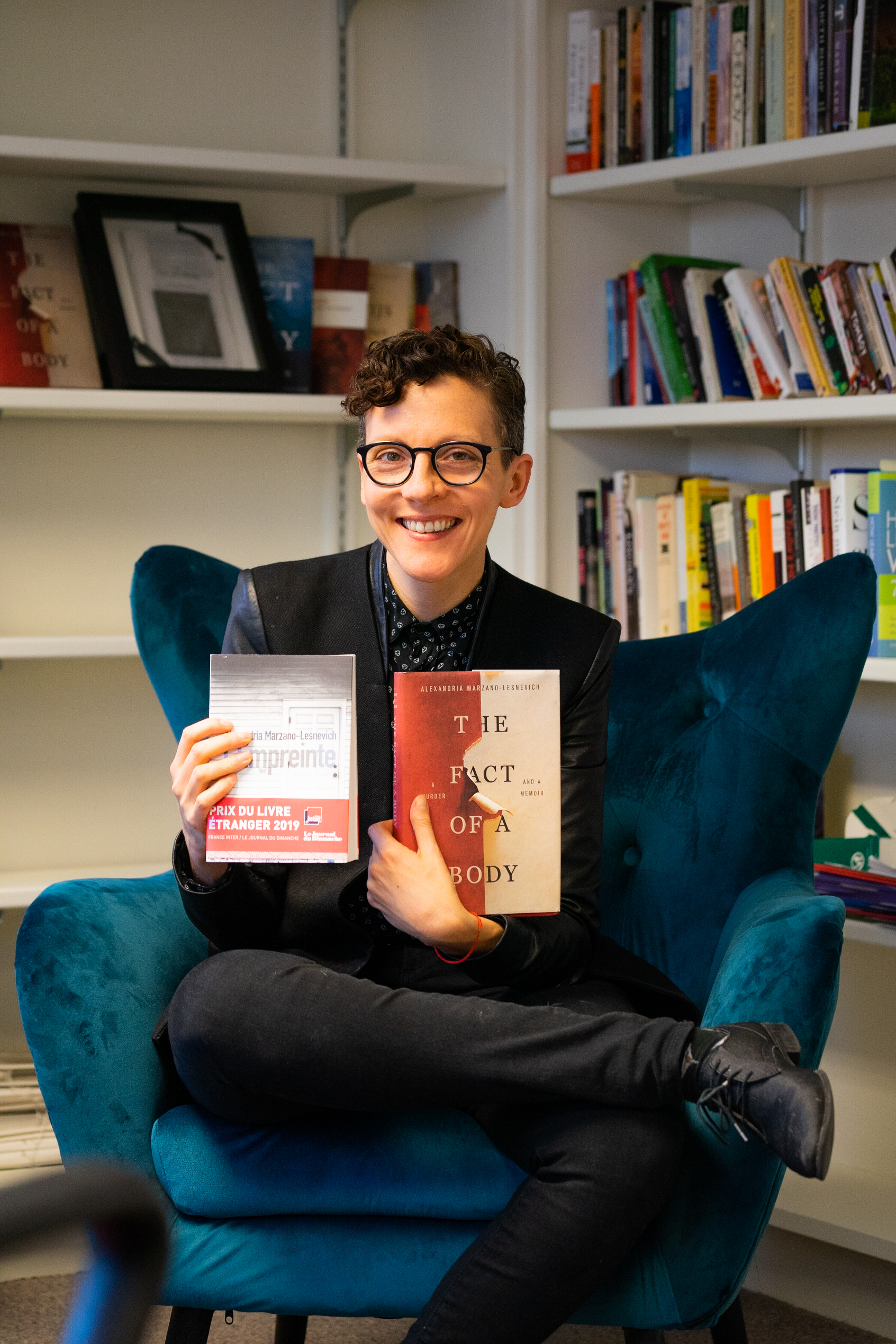English professor earns international acclaim
February 8, 2019
 Jack Burnett
Jack BurnettThis year, the English department brought new and now internationally-award-winning talent to its faculty. Author and Assistant Professor of English Alex Marzano-Lesnevich recently won the prestigious France Inter-JDD foreign book prize for the French translation of their 2017 cross-genre book “The Fact of a Body: A Murder and a Memoir.”
This award is given by a committee of prominent French journalists to one book internationally per year in any genre. Although Marzano-Lesnevich has received various awards for the book, they said this particular honor felt different.
“When [the committee chooses] one book in all the world—even if you believe in your work, even if you’re proud of your work, even if you love your work—it can be a little difficult to wrap your head around,” Marzano-Lesnevich said.
It was particularly meaningful to Marzano-Lesnevich that the panel was excited about how their book crossed genre lines—autobiography blended with true crime—and prompted more serious discussions and interviews about complex legal matters.
The book weaves together the story of Ricky Langley’s trial for the murder of six-year-old Jeremy Guillory and Marzano-Lesnevich’s own experience with the case. Through this braided narrative, Marzano-Lesnevich explores how we construct the past through our understanding of ourselves and others in the context of storytelling.
While attending Harvard Law School, Marzano-Lesnevich took an internship in Jackson, Louisiana at a firm that defended people facing the death penalty. The Langley case, in which the mother of the murdered boy testified for the murderer, triggered a trying emotional response from Marzano-Lesnevich and prompted them to look back into the case years later, searching through court records and evidence.
“I didn’t get the records [from the case] initially thinking that I would write a book about it, absolutely not,” Marzano-Lesnevich said. “I just got the record thinking that I would put the story down, that I would stop thinking about it, and of course that’s not what happened.”
The France Inter-JDD panel noted that the extensive research done for “The Fact of a Body: A Murder and a Memoir” set the book apart from other competitors for the prize. The book was ultimately written using 30,000 pages of court records that Marzano-Lesnevich traced down in Louisiana over many years.
In many ways, the research drives the story.
“It’s really the book’s relationship to research and to the court records that show you the narrator’s story of gathering these court records and reading them over and over again and beginning to imagine the people in them so as they were as real as the people in the room,” Marzano-Lesnevich said.
The heart of the book, however, goes beyond the stories of the trial and the narrator’s life.
“In a way [the book is] about how we understand each other through our own lives, but it’s also about empathy and how empathy works,” Marzano-Lesnevich said. “It’s about imaginative understanding.”
While teaching at Harvard’s Kennedy School of Government, Marzano-Lesnevich found that their students were often impressed by how useful storytelling and its functions are. It was a lightbulb moment sparking Marzano-Lesnevich’s desire to teach students earlier in their academic careers.
“I was like, ‘Why aren’t I talking to students earlier?’” Marzano-Lesnevich said. “That’s what brought me here.”
This desire brought them to Bowdoin, where they teach creative nonfiction writing. So far, the change has been deeply rewarding.
“I love that I don’t have to worry about whether the students have done the reading,” Marzano-Lesnevich said. “I think any professor will tell you that’s the dream, to just be able to go in and know that we’re going to have an interesting conversation because people are prepared. That’s been a really wonderful thing.” One of the most exciting parts of working at Bowdoin, they said, is that faculty and students alike are ready and eager to rigorously explore their craft and take on new challenges. This semester, they’re teaching a class on creative research, which came out of their work on their book. Next spring, they plan to teach an advanced nonfiction class examining hybrid and fragmentary forms like the one employed in “The Fact of a Body.”
“One of the things I love about the school is the way that for myself, and I think many other faculty, our research, our scholarship and our art feed the teaching and then the teaching feeds [our work],” Marzano-Lesnevich said. “It’s just a pleasure to work with passionate students and colleagues and get excited about ideas and art.”

Comments
Before submitting a comment, please review our comment policy. Some key points from the policy: